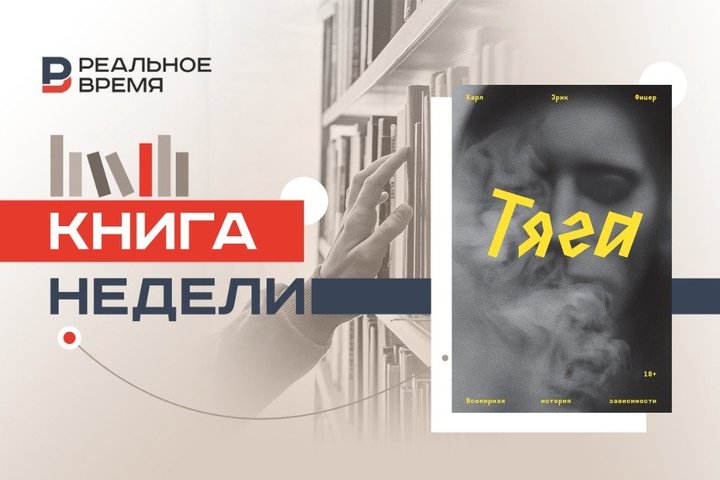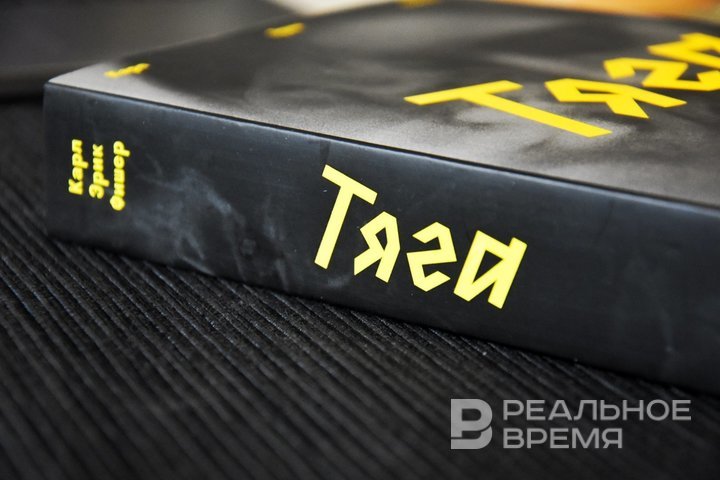How humanity reinvents addiction again and again
The Urge by Karl Eric Fisher — a perspective on addiction through the lenses of culture, politics, and philosophy

In 2024, Russia had approximately 6 million people suffering from drug addiction. More than half of them were teenagers and young adults. At the same time, there were 18 million people who, though undiagnosed, used drugs periodically. Every day, 80 people die from drug use. This is one of the country’s urgent problems. On Thursday, 26 June, the Day of Struggle Against Drug Addiction, this grim statistic was discussed. Yet, beyond drug addiction, there is also alcoholism. And there are addictions that are not considered as severe or dangerous: gambling, sex, food, work, gadgets. Karl Eric Fisher explores addiction from the perspectives of medicine, culture, politics, philosophy, and religion in his book The Urge.
Privilege in treatment
Karl Eric Fisher’s book The Edge contains no sweeping generalisations or quick fixes. He writes not about victory over addiction, but about its banality and persistence. Fisher himself is a former patient of a rehabilitation centre for doctors. Now he treats others. And he tells stories. Many stories. About himself. About his mother. About the first support groups. About Washington’s soldiers. About Nixon and the “crime disguised as treatment.” The Urge contains no struggle. There is chronicle, memory, and scattered facts across centuries. Together, they form the book’s main idea: addiction is not fought — it is lived with.
One evening, Karl Eric Fisher returned to his empty apartment. On the floor lay a tangled bundle of copper wires. He recognised them. Wires from a stun gun. Several months earlier, police officers in body armour had taken Fisher from this very place. He resisted. One officer asked, “So, buddy, will you come with us voluntarily?” Fisher replied, “Not sure.” He was shocked, restrained, taken to a psychiatric ward, then transferred to a closed clinic.

At the time, he was already a doctor specialising in psychiatry. His addiction began during internship. Alcohol first, then Adderall — a stimulant to stay awake after shifts. At first, Fisher drank to relax. Then — to make it through the night. Then — simply out of habit. At some point, he realised everything had spiralled out of control.
But he was lucky. The system saved him. He was not fired, not imprisoned, not abandoned. He underwent treatment through a programme for medical professionals. Fisher says he had a privilege — the privilege to receive treatment rather than die. He emphasises that most people do not have this privilege. And so addiction is not an individual story. It does not originate within a person. It accumulates in the system. In family, in poverty, in stress, in legacy.
Living with it
The Urge is an attempt to view addiction as a cultural phenomenon, not merely a diagnosis. Fisher has his own heroes. For example, Lee Robins, a researcher who proved that most soldiers who used heroin in Vietnam stopped after returning home. Environment, stability, and the chance to start anew proved more important than medication.
Another example is the history of Native Americans. In the 18th century, colonisers deliberately distributed cheap alcohol in reservations. It was a strategy: get them drunk — and disarm them. At that time, Native Americans established the first mutual aid community in America focused on recovery. It anticipated Alcoholics Anonymous by 150 years.

Or consider India and the Vedic Sanskrit hymn collection, the Rigveda. It turns out addiction was described there — not to opium, but to dice games. The player hears the dice fall and rushes to them “as a lover hastens.” He whispers to himself, “Now mine shall be the highest!” This describes compulsive behaviour that today would be recognised as a disorder.
Fisher uncovers even more unexpected facts. For example, the word addictionwas first used not in relation to drugs, but... to chocolate. The history of addiction has deep and enduring roots. For instance, in the 19th century, the average American consumed seven gallons of pure alcohol per year — that is more than five standard drinks a day for every person over fifteen. And mornings in America often began not with coffee, but with a glass of rum.
Fisher’s book stands against quick fixes and programmes. The author is cautious about the disease model of addiction. He does not deny it — but he also does not believe that a diagnosis of “alcoholism” or “drug addiction” automatically helps people to stop. He compares it to diagnoses like attention deficit hyperactivity disorder: they can provide an explanation, but not always a solution. Sometimes a label offers a convenient excuse not to change.
Fisher does not criticise Alcoholics Anonymous, but he does not idealise it either. He shows where the movement came from and how it developed. He writes about medications that help manage opioid addiction, but emphasises that they remain largely unavailable in most clinics. Fisher discusses drug tests — and admits that he regularly takes them himself to keep himself in check. Yet he immediately adds: if this approach does not work for educated medical professionals, how can it work for those who have neither a job nor support?

Fisher says that addiction is a completely ordinary phenomenon that has been and will continue to be part of human life. One of many ways to cope with pain. Destructive as it is, it is part of how a person lives, suffers, and tries to manage. The author argues that we will not conquer addiction, but we can learn to live with it — gently or firmly, but not by waging war. Because the war on addiction is a war against our own nature, Fisher says.
Fisher is a doctor who has himself been through rehabilitation. He does not try to sugarcoat anything. He writes plainly. Sometimes harshly. Sometimes tenderly. Sometimes with confusion. His mother was an alcoholic. She drank until her death, despite cancer, despite having a son-doctor. He could not stop her. And in this lies the honesty of the book. The Urge is difficult to call a practical manual. It is not a guide. It is a story — about how humanity, from ancient times to the present day, has sought relief and found it in potions.
Ekaterina Petrova — a literary critic for Realnoe Vremya online newspaper and the host of the Telegram channel Buns with Poppy Seeds.